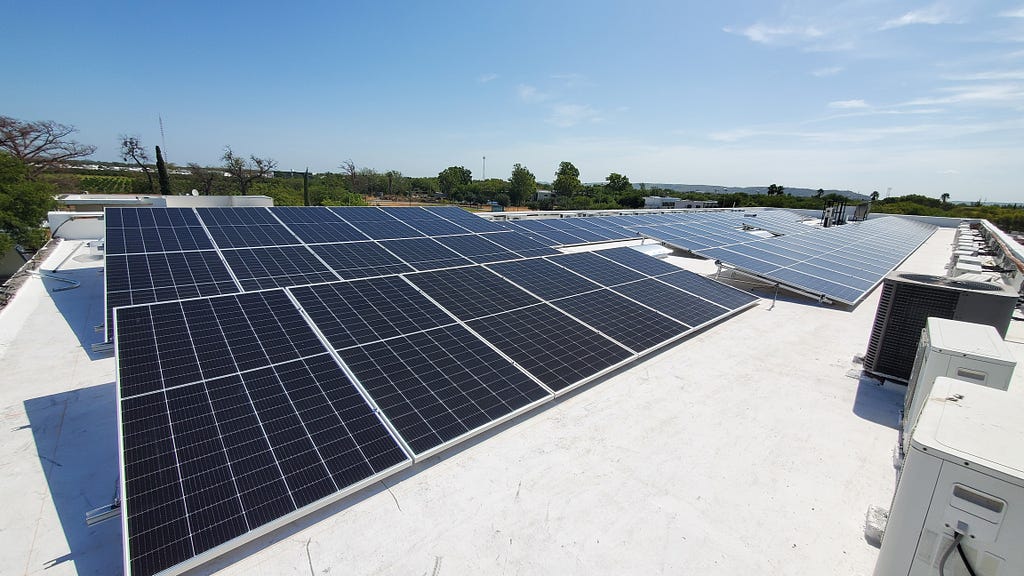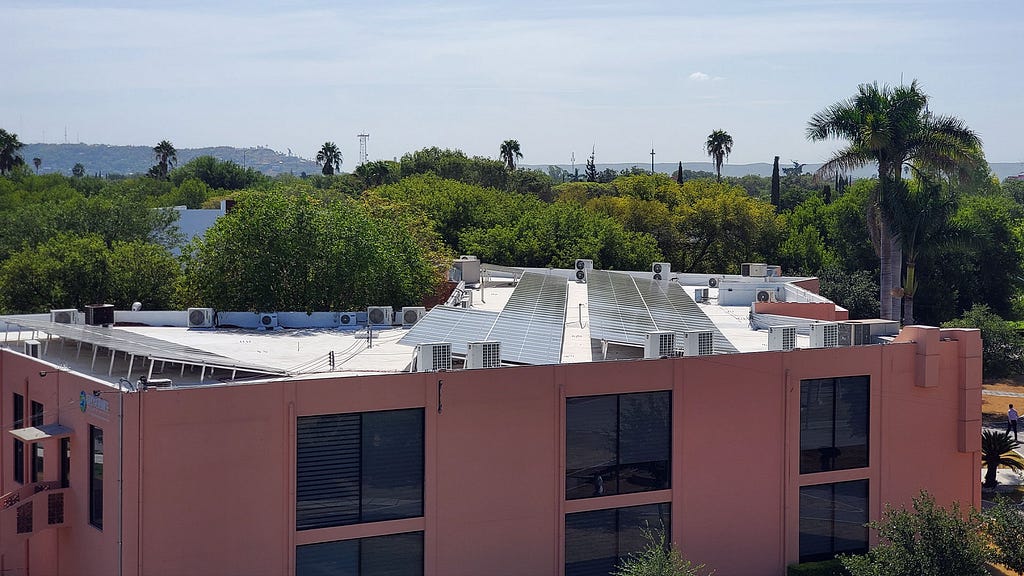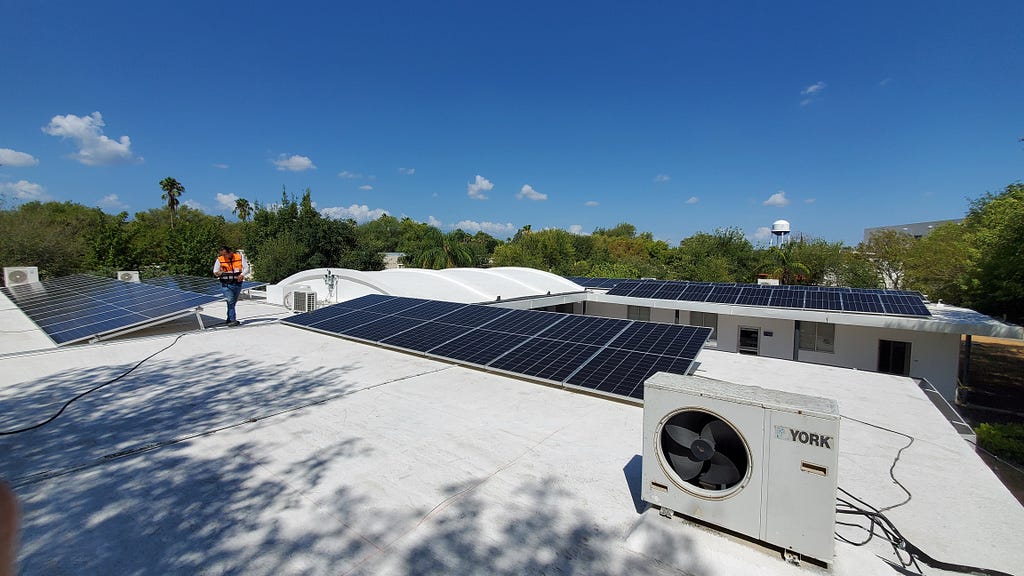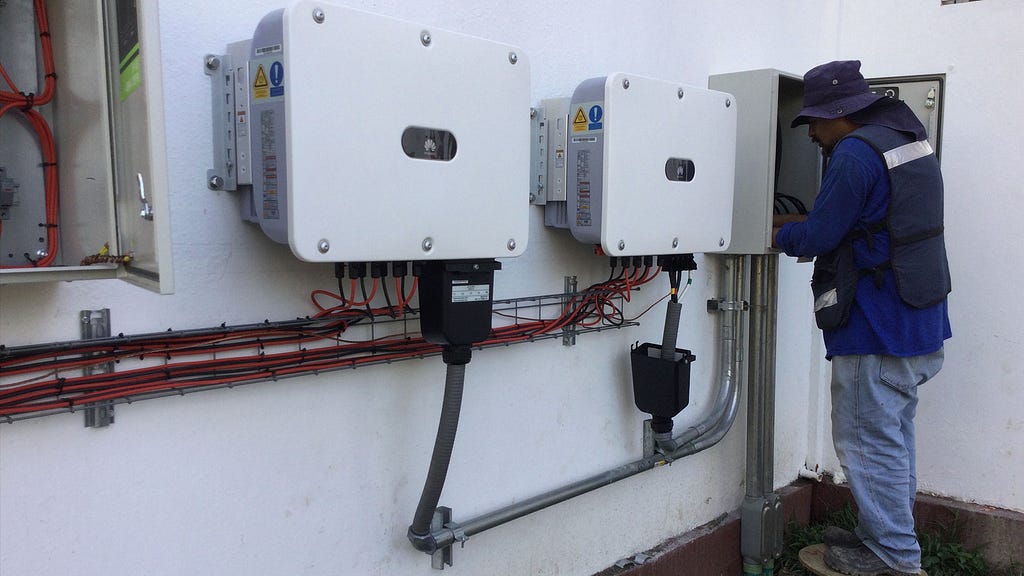
Montemorelos University, a Seventh-day Adventist institution overseen by the Inter-American Division, recently began installing solar panels on several on-campus buildings to become a more sustainable and ecologically friendly institution.
The initiative is part of the university’s Green Campus master development plan. It embraces the institution’s initiatives and strategies to find better planet-friendly alternatives to improve quality of life consistent with the biblical principles of stewardship, César Fuentes, Montemorelos University architect overseeing the project, said.
So far, 869 solar panels have been installed.
“This initiative not only represents a technological advance and a firm commitment to clean energy and the reduction of the carbon footprint, but also reflects the conviction of the importance of renewable energy and sustainability in the training of future leaders,” Fuentes said.
The transition toward solar energy in an academic institution has many benefits, he said.
“Besides contributing to the reduction of carbon emissions and other greenhouse gases, solar energy avoids dependence on finite and non-renewable resources and reminds students of the importance of renewable and sustainable energy in a world that demands more and more,” Fuentes said.
The implementation of solar panels has not generated additional costs for the institution, according to Fuentes. “Montemorelos University has retained the services of a company that finances the solar panel system in the long term,” he said. “During the first 13 years the university will pay for its normal energy consumption, but in year 14 the panels become the property of the university, and all energy savings are allocated to its needs.”



Currently, Montemorelos University consumes 1,500 kW daily, and the implementation of solar panels will allow for a savings of 500 kW.
In addition to the implementation of solar energy, other areas that are part of the project are reforestation, waste management, and gray, black, and rainwater management. These efforts are supported by Autonomous University of Nuevo Leon, which provides advice based on its experience in sustainability.
“We hope that over the next few years, in accordance with trends in the development of technology, subsequent stages can be carried out until reaching 100-percent consumption of generated clean energy,” Joel Sebastian, vice president of finance at Montemorelos University, said. Leaders also hope it provides “enough to accumulate in storage systems such as batteries or others to get closer to self-sustainability,” he added.
The university is on the right track, Montemorelos University president Ismael Castillo emphasized. “We have a very special commitment to God in relation to our stewardship with the earth, with nature,” he said. “We have taken a while to fulfill this great commitment, and nature is God’s, and we have to honor the God of nature.”
Montemorelos University will continue to adopt ecological and sustainable practices and prepare students to face the environmental challenges of the 21st century, Fuentes said.
The original version of this story was posted on the Inter-American Division news site.